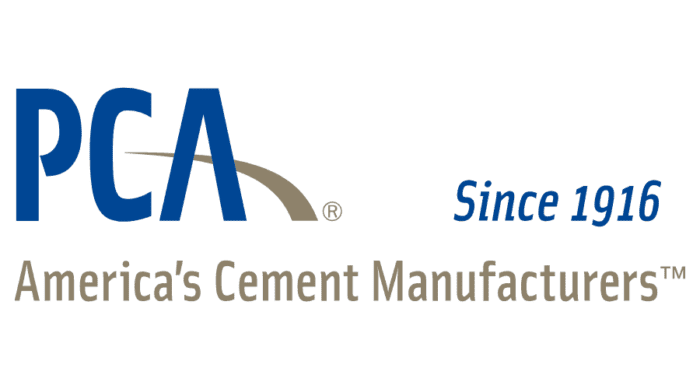Four PCA Member Companies Awarded a Total of More Than $1 Billion from DOE

Money Will Fund Major Decarbonization Projects
Washington, D.C. (March 25, 2024) — Today the U.S. Department of Energy announced potentially more than $1.2 billion in funding for four Portland Cement Association (PCA) member companies to launch revolutionary decarbonization projects. The funding comes by way of the Biden Administration’s Bipartisan Infrastructure Law and the Inflation Reduction Act (IRA)—two pieces of legislation PCA advocated strongly for on Capitol Hill.
In all, the Administration awarded $6 billion to hard-to-abate industries, with the hope of transforming America’s industrial sector to strengthen domestic manufacturing and significantly cut GHG emissions.
“This funding is a welcome acknowledgement from the government that America’s cement manufacturers are taking ambitious and significant steps toward reaching carbon neutrality,” said Mike Ireland, PCA President and CEO. “This will move the needle closer to achieving what industry considers the ‘heavyweight’ of carbon solutions: Carbon Capture Utilization and Storage (CCUS). Once established nationwide, CCUS will greatly accelerate cement manufacturers’ charge toward net zero.”
This transformative federal investment is matched by the selected projects to leverage more than $2 billion to demonstrate commercial-scale decarbonization solutions needed to advance the industrial sector to the carbon-free finish line.
The PCA member company awardees include:
Heidelberg Materials US, Inc. awarded up to $500 million
The Mitchell Cement Plant Decarbonization Project intends to build and operate an integrated carbon capture, transport, and storage system at Heidelberg’s newly modernized plant in Mitchell, Indiana. This project would capture at least 95% of the carbon dioxide from one of the largest cement plants in the nation and store it in a geologic formation beneath the plant property. This project expects to prevent 2 million tons of carbon dioxide per year from entering the atmosphere and would demonstrate a pathway to decarbonize existing cement plants in the U.S.
National Cement Company of California, Inc. awarded up to $500 million
The Lebec Net Zero Cement Plant Project plans to produce carbon-neutral cement at the Lebec, California plant. Instead of fossil fuels, the project would use locally sourced biomass from agricultural byproducts such as pistachio shells, replace clinker with a less carbon intensive alternative (calcined clay) to produce limestone calcined clay cement, and capture and sequester the plant’s remaining approximately 950,000 metric tons of CO2 each year.
Summit Materials, Inc. awarded up to $215.6 million
The Low-Carbon Calcined Clay Cement Demonstration Project is slated to build four new calcination facilities in Maryland, Georgia, and Texas. It would demonstrate the viability of displacing high-emitting limestone-based cement with a clay-based product in multiple geographies. This project’s range of sites builds the case for this demonstration’s replicability given that clay sources and availability of cementitious products around the country are highly diverse. The scale has the potential to prevent 1.1 million metric tons of CO2 emissions per year.
Roanoke Cement Company awarded $61.7 million
The Limestone Calcined Clay Cement Production Project will take place at Roanoke’s Troutville, Virginia plant, and will demonstrate the ability to utilize widely available clay types to minimize the most carbon-intensive component in cement. The project will also help validate the market for calcined clays in a region with high demand for the material while reducing the carbon intensity by an estimated 83%.
Additionally, the funding will develop a training and education consortium to promote workforce development, certification, and education required for jobs at the primary manufacturing site and the selected mining location.
“From passage of the Bipartisan Energy Act of 2020 to securing funding through the IRA and the Infrastructure Investment and Jobs Act, today’s announcement is another major milestone in the cement industry’s decarbonization efforts,” said Sean O’Neill, PCA’s Senior Vice President of Government Affairs. “PCA is committed to continuing to work with policymakers to ensure the regulatory environment facilitates rather than impedes these and future investments.”
About the Portland Cement Association
The Portland Cement Association (PCA), founded in 1916, is the premier policy, research, education, and market intelligence organization serving America’s cement manufacturers. PCA supports sustainability, innovation, and safety while fostering continuous improvement in cement manufacturing, distribution, infrastructure, and economic growth. For more information, visit www.cement.org.


